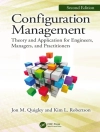In this concise yet comprehensive history, Heinz D. Kurz traces the long arc of economic thought from its emergence in ancient Greece to its systematic presentation among the classical thinkers of the late eighteenth and early nineteenth centuries to the influential work of scholars such as Paul Samuelson and Kenneth J. Arrow. With a keen eye for how economic insights are acquired, lost, and reborn, Kurz focuses on the dynamic individuals who give old ideas new life and the historical events that provoke different approaches and theories.
Over the course of this journey, Kurz explains what Adam Smith meant by the ‘invisible hand’; how Karl Marx’s ‘law of motion’ works in capitalist economies; the roots of the Austrian economists’ emphasis on the problems of information, incomplete knowledge, and uncertainty; John Maynard Keynes’s principle of effective demand and economic stabilization; and the insights and challenges offered by growth theory, welfare economics, game theory, and more. He concludes with a deft summation of world economists’ major concerns today and their critical relation to world events.
Tabla de materias
Preface
Introduction
1. Early Economic Thought
2. Classical Economics
3. Marx and the Socialists
4. The Rise of Marginalism
5. Marshall and the Theory of Partial Equilibrium
6. Utilitarianism, Welfare Theory, and Systems Debate
7. Imperfect Competition
8. Schumpeter and the Principle of Creative Destruction
9. Keynes and the Principle of Effective Demand
10. Reactions to Keynes
11. General Equilibrium Theory and Welfare Theory
12. Developments in Selected Fields
A Final Word
References and Bibliography
Index
Sobre el autor
Heinz D. Kurz is professor of economics at the University of Graz in Austria and founder of the Graz Schumpeter Centre. He has also taught at numerous universities around the world, including Cambridge University and the New School for Social Research. His books in English include
Theory of Production: A Long-Period Analysis and
Understanding ‘Classical’ Economics: Studies in Long Period Theory.












